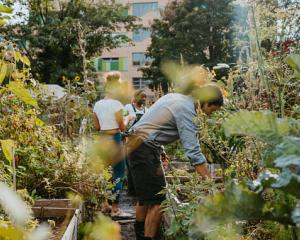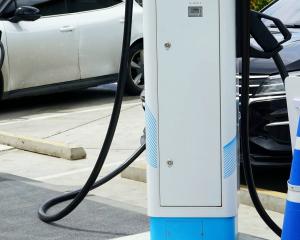
Who thought that in 2023 we’d be seeking wisdom from Barbie? "You have to go to the real world. You can go back to your regular life, or you can know the truth about the Universe." So true in 2023.
Global and national events during the first half of the year have shown us that "the era of global boiling has arrived", as UN secretary general Antonio Guterres said last month, when the hottest month on earth was recorded. We can’t put this back in the box. But we can do something about it.
I was inspired recently by the Lawyers for Climate Action’s success in obliging the government to follow the Climate Change Commission’s advice on the Emissions Trading Scheme settings. Labour had made the wrong decision and did a necessary U-turn.
Yet the market approach has not delivered results at the pace and scale required and we need more direct interventions to provide real domestic emissions reduction and help us adapt to the challenges ahead. Emissions reduction that will deliver healthier homes, better transport infrastructure, more resilient rural communities and increased wellbeing.

Think energy farming. Local area energy planning is a model that is being rolled out in the UK to maximise the use of existing energy assets for a more decentralised, decarbonised and dynamic energy system. It typically involves local government involvement.
Imagine if our energy dollar was kept in local circulation through local regional ownership and management of some critical energy assets such as electricity network infrastructure (already owned by us through Dunedin City Holdings Limited), like a peer-to-peer electricity retail company (like the old Blueskin Energy Network, that shared benefits with the community while it operated), like wind and solar power owned by Māori and community interests, with profits returned to the community, like the diversity of privately owned EVs, hot-water cylinders and heat-pumps that can add flexibility to our energy system. We have all the parts and we just need to re-assemble them.
Whether we understand it or not, we are all participants in the energy system, and by democratising the way we do things — i.e., by engaging people in changing when they use power for either short-term demand response or for permanent behaviour shifts — we can unleash a faster transition to low carbon, build resilience and unlock community investment and assets to pick up the pace further.
Think an integrated zero carbon transport system.
An urban zone where private cars are progressively replaced with accessible, affordable, attractive public transport and where cycleways and pedestrianisation is supported, should be our goal. Successful overseas examples show how well received such changes are once implemented and even here in New Zealand we can see the difference. Public transport in Wellington, though not what it used to be, is still a joy to use for those of us used to Dunedin’s public transport.
Here in Dunedin we need our two councils to work together and for central Government to come to the party. And since all motorised transport must be electrified, the integrated zero carbon transport system can be incorporated into local area energy planning so those big bus batteries can add flexibility to the grid.
Think local, seasonal, nutritious food and homegrown fibre. Our rural communities need central Government support to transition to regenerative, organic agriculture and to focus on value rather than a volume of low cost primary produce.
We shouldn’t be putting plastic carpets produced by a US chemical company into our schools when we have a struggling wool sector and we shouldn’t be paying global prices for produce that is grown just down the road.
Cuba had to make a rapid transition from a highly mechanised, industrial farming system to one embracing organic, community and urban based food provisioning in 1990 when the Soviet Union collapsed.
We mustn’t wait for collapse. As a nation we have severely under-invested in sustainable rural transitions and we need a reorientation of research away from techno-fixes and towards managing risk for farmers and growers who do the right thing for nature.
The National Policy Statement for Indigenous Biodiversity has just come into force and a parallel consultation is out seeking feedback on biodiversity incentives to reward people and groups who protect areas of ecological significance as well, like the wonderful Te Nukuroa o Matamata restoration project, led by Te Rūnaka o Ōtākou.
As Barbie said, we can "Live [our] Dream", but only if we make it real by taking it out of the box and implementing the solutions.
We can’t afford to pretend that the climate crisis is not real. We can act collectively to restore the whenua, and make the wellbeing of future generations our priority.
— Scott Willis is a climate and energy consultant. Each week in this column one of a panel of writers addresses issues of sustainability.












